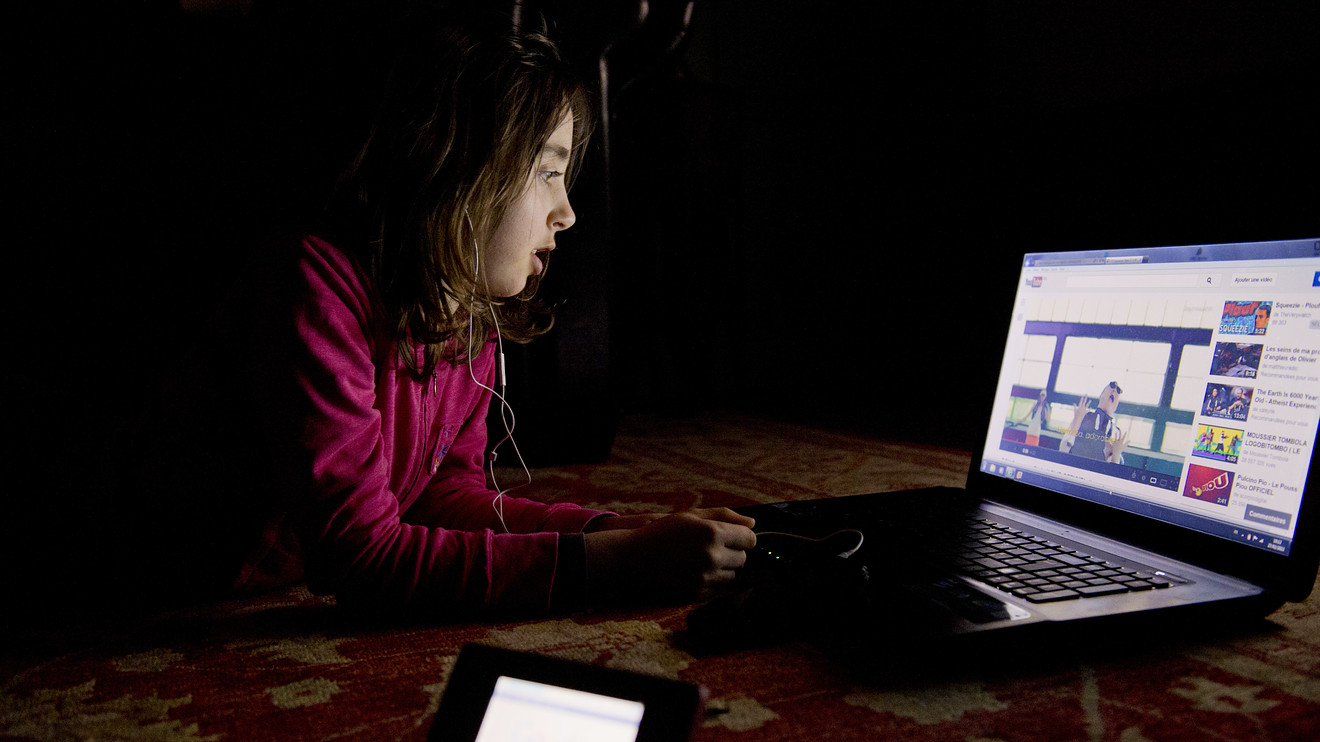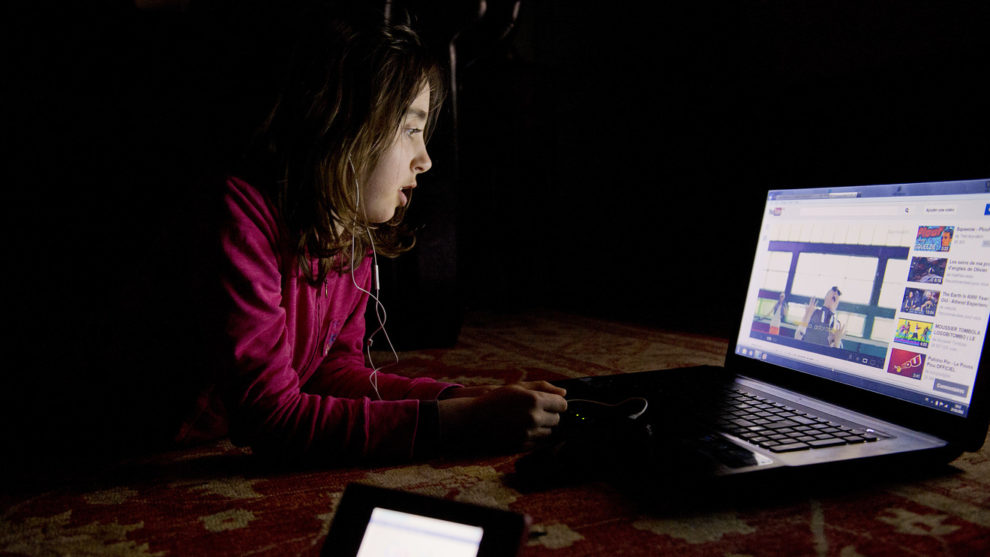
YouTube is paying $170 million fine for allegedly collecting children’s data without their parents’ permission.
But while the video platform pays up — too little, some argue — many parents don’t know much about the rules it allegedly broke. With an estimated 83% of American kids ages 6 to 12 watching YouTube daily, it’s probably time to find out.
YouTube is settling a case alleging it violated the Children’s Online Privacy Protection Act (COPPA), a 21-year old federal law that requires parental consent before companies can collect and share data on viewers under age 13.
YouTube — owned by Alphabet GOOG, -0.53% GOOGL, -0.48%, Google’s parent company — isn’t admitting liability in the settlement. But it is making changes. That includes limiting data collection for anyone watching children’s content, regardless of how old they might be. It also means the end of personalized ads on these videos.
Josh Golin, executive director of the Campaign for a Commercial-Free Childhood, said it’s a positive step that children will be subjected to less targeted advertising on the popular site, but he was disappointed regulators weren’t demanding broader changes.
“A plethora of parental concerns about YouTube — from inappropriate content and recommendations to excessive screen time — can all be traced to Google’s business model of using data to maximize watch-time and ad revenue,” he said.
But parents can also address those concerns by making sure the sites their kids visit follow COPPA. Here’s what to know about the law and how to find sites that follow it.
Why is it important to go to websites following COPPA’s terms?
America has federal laws protecting privacy in specific contexts — like access to someone’s medical information — but it doesn’t have a law offering blanket protections.
COPPA is one of those specific carve outs, according to Angela Campbell, a Georgetown University Law Center professor who filed the initial complaint against YouTube and Google on behalf of groups including the Campaign for a Commercial-Free Childhood and the Center for Digital Democracy.
On paper at least, COPPA is meant to shield kids from manipulative advertising, said Campbell, who chairs the Campaign for a Commercial-Free Childhood. Targeted ads can influence adults, she acknowledged, but “the potential for manipulation is even worse for kids. They don’t really understand advertising at all.”
Moreover, unchecked data collection on non-compliant sites gives companies and third-parties the “potential to create huge profiles” on kids from a tender age, she said. Campbell couldn’t say how specific those profiles could get, but noted “there are thousands of data points” — right down to the unique identifier of the device beaming the content.
What does a COPPA-compliant site look like?
If a site is aimed at kids under age 13, it must have a privacy policy that “clearly and comprehensively describes how personal information collected online from kids under 13 is handled,” according to the FTC. The notice shouldn’t only detail how the site collects information, it should also explain how connected third parties use information, the FTC says.
The site should also have an easy-to-read “direct notice” to parents asking for permission to collect data. Parents need to give “verifiable consent.” They can consent by signing a form, linking a credit card to an account or other steps. And if they don’t consent, the collection won’t happen.
Simple, right?
For the typical parent needing to navigate a ‘woolly media landscape,’ it’s really difficult.
For the typical parent needing to navigate a ‘woolly media landscape,’ it’s really difficult, said Shelley Pasnik, director of the Center for Children & Technology. Even when talking to parents who are focused on the content their kids consume, Pasnik finds the parents have “no knowledge of COPPA.”
One issue with the law is whether the site’s makers consider it directed towards children under 13. For example, Google employees once said they didn’t have users below 13, so they didn’t need to follow the statute, according to court papers in the settlement.
“From its earliest days, YouTube has been a site for people over 13, but with a boom in family content and the rise of shared devices, the likelihood of children watching without supervision has increased,” YouTube CEO Susan Wojcicki noted in a statement on the settlement.
Wojcicki said the site will continue to recommend YouTube Kids for young viewers. YouTubeKids is a curated video site separate from the main YouTube site. It uses a less lucrative advertising model that isn’t based on personalized advertisements, court papers say.
And sites that openly target younger audiences can have tricky data-collection policies. “Most of time, privacy policies are incomprehensible,” Campbell said. She’s been practicing law for 30 years — and she said she gets confused by some of the verbiage that can come up.
Don’t miss: 5 questions you should ask your bank before trusting it with your personal data
Furthermore, many parents could sign off and give consent for their kids data to be collected, without actually reading the privacy policy. Studies have shown the majority of consumers breeze by the digital fine print.
Besides, there’s no mechanism in place to guarantee that the parent is the person giving the consent, Campbell said.
‘Ongoing rights’
Even if parents agree to data collection, they are not signing away their children’s rights forever.
The FTC notes parents have “ongoing rights” and companies have “continuing obligations.” If parents ask, companies need to give them a way to review the personal information collected from their child, the agency noted.
Parents can also rescind their consent and make websites delete their child’s personal information, the FTC said.
Room for improvements?
In July, the FTC announced it wanted public input on whether COPPA needed an update. The law took effect in 2000 and its rules were last amended in 2013. The regulator is holding a public forum on possible changes next month.
‘Most parents do not read privacy policies, and even if they do, many do not provide the information needed for informed consent.’
Campbell’s previously told the FTC that the law is outmoded in its current form. “Most parents do not read privacy policies, and even if they do, many do not provide the information needed for informed consent,” she wrote. Besides, the FTC hasn’t “effectively enforced” the law, and that lets “many companies feel free to ignore COPPA’s requirements.”
In March, Senators Ed Markey, a Democrat from Massachusetts, and Josh Hawley, a Republican from Missouri, introduced a bill amending COPPA. Among other things, the bill says websites would have to ask for parents’ permission on child data collection through age 15.
At the time, Markey said kids were now “bombarded” with advertising. “If we can agree on anything, it should be that children deserve strong and effective protections online,” he said.
Alphabet shares are up almost 17% from the start of the year. The S&P 500 SPX, +0.09% is up nearly 19% and the Dow Jones Industrial Average DJIA, +0.26% is up almost 15% over the same period.











Add Comment